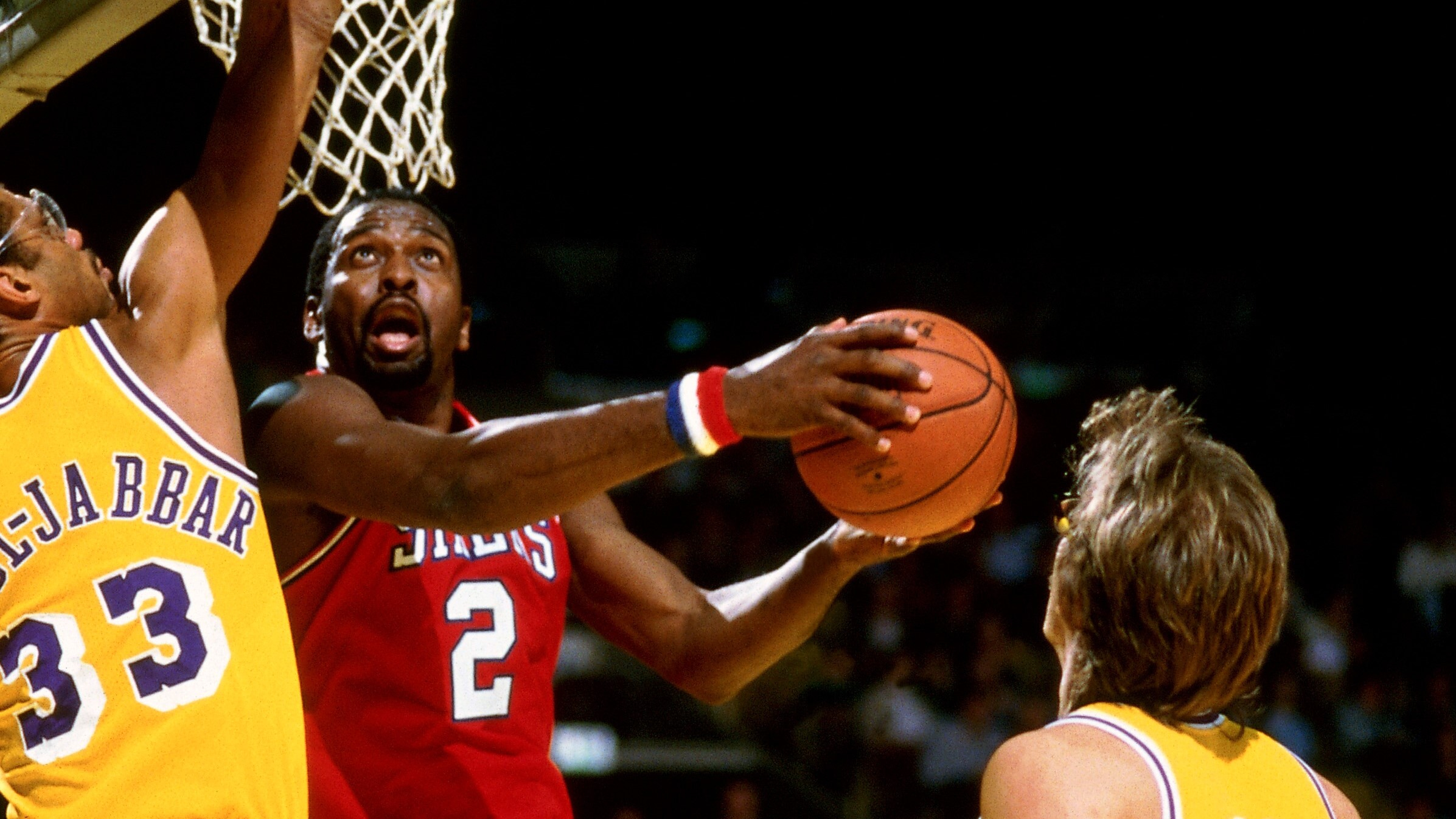
Moses Malone #2 of the Philadelphia 76ers tries to shoot the ball in the game against the Los Angeles Lakers at The Forum in Inglewood, California, 1982. /VCG
Moses Malone #2 of the Philadelphia 76ers tries to shoot the ball in the game against the Los Angeles Lakers at The Forum in Inglewood, California, 1982. /VCG
What's the first thing that comes to your mind when you hear the name "Moses Eugene Malone?" That he was the first high-school professional basketball player? That he was ridiculously good in offensive rebounding?
Here are some numbers that might help you learn more about him.
He scored 27,409 points in his career, the ninth-most in the NBA.
He grabbed 16.212 rebounds in total, the fifth-most in history, after Wilt Chamberlain, Bill Russell, Kareem Abdul Jabbar and Elvin Hayes.
Malone kept the NBA records of offensive rebounds in career (6,731), season (587) and game (21).
He came second in free throw attempts (11,090) and free throws made (8,531), only after Karl Malone.
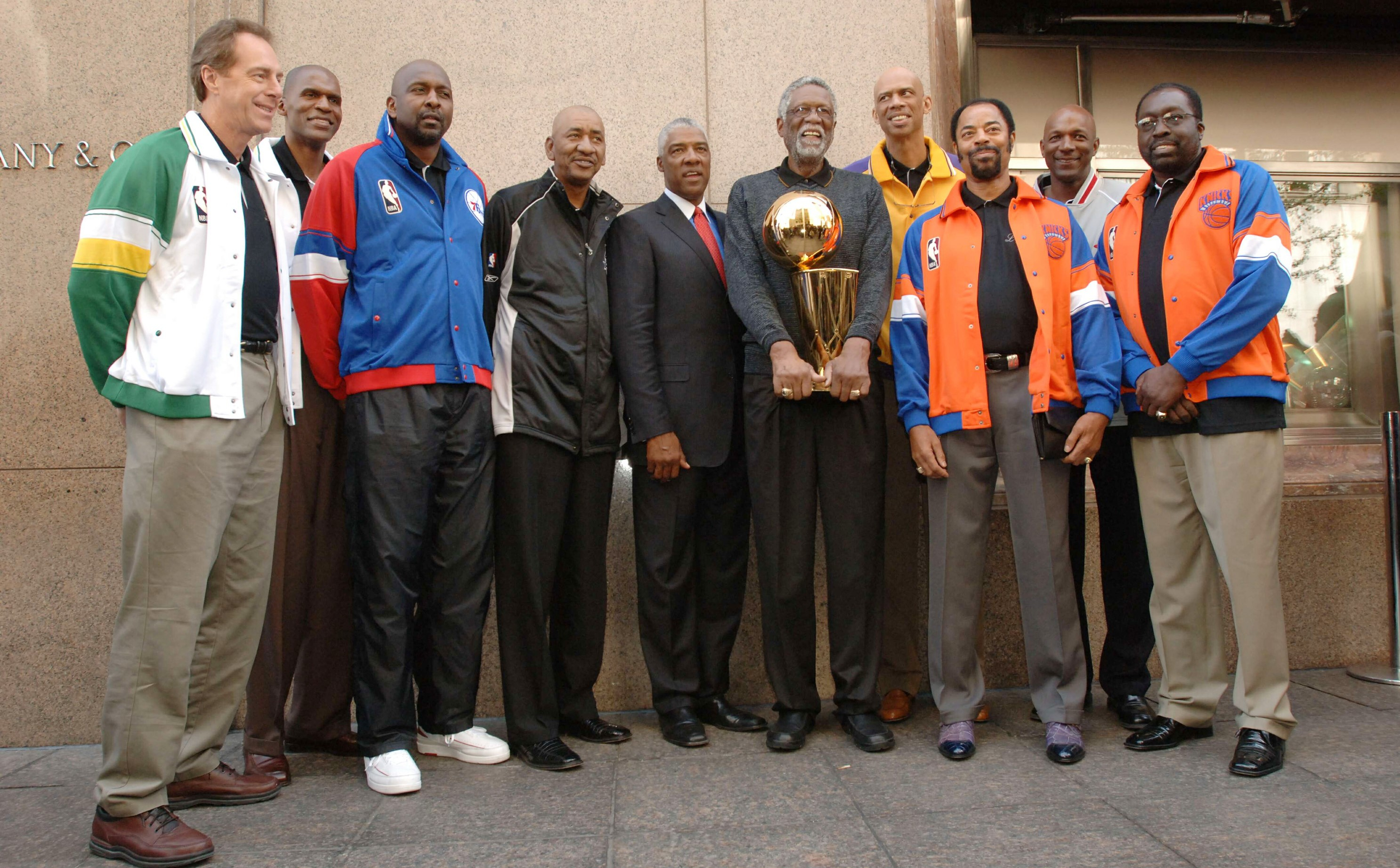
L-R: Robert Parish, Moses Malone, George Gervin, Julius Erving, Bill Russell, Kareem Abdul Jabbar, Walt Frazier, Clyde Drexler and Earl Monroe pose outside the NBA Store with the Larry O'Brien Championship Trophy during the Destination Final Legends Tour Launch in New York City, New York, April 21, 2005. /VCG
L-R: Robert Parish, Moses Malone, George Gervin, Julius Erving, Bill Russell, Kareem Abdul Jabbar, Walt Frazier, Clyde Drexler and Earl Monroe pose outside the NBA Store with the Larry O'Brien Championship Trophy during the Destination Final Legends Tour Launch in New York City, New York, April 21, 2005. /VCG
Malone was six-time NBA rebounding champion, only Chamberlain (11) and Dennis Rodman (7) are better than him.
He was also three-time NBA MVP, the sixth-most in NBA history after Abdul-Jabbar (6), Michael Jordan (5), Russell (5), Chamberlain (4) and LeBron James (4).
From 1979 to 1983, Malone was the best player in the NBA, better than Julius Erving and Abdul Jabbar. In those five years, he won three NBA MVP awards, four rebounding titles, one NBA Championship and one NBA Finals MVP.
In 1974, when Malone was about to graduate from Petersburg High School, he averaged 36 points, 26 rebounds, 10 blocks per game in his last season in high school. Over 250 universities wanted him but he chose to go professional because college basketball was just too easy for him.
He was then selected by the Utah Stars. In his first six games for the team, Malone grabbed a total of 65 offensive rebounds, showing his teammates, most of whom are much older than him, how tough this rookie from high school could be.
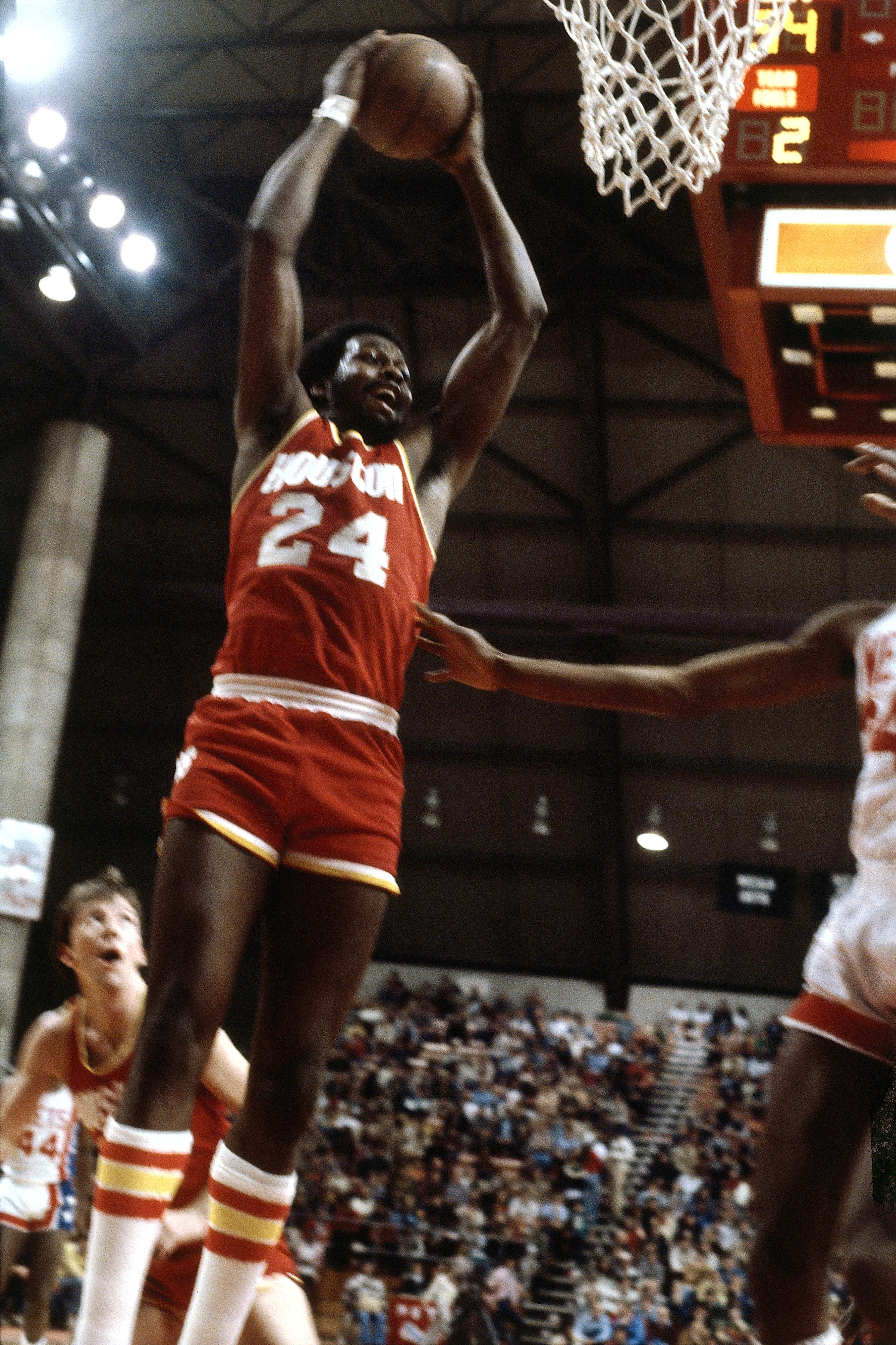
Moses Malone #24 of the Houston Rockets drives towards the rim in the game against the New Jersey Nets at the Nassau Veterans Memorial Coliseum in Uniondale, New York, 1976. /VCG
Moses Malone #24 of the Houston Rockets drives towards the rim in the game against the New Jersey Nets at the Nassau Veterans Memorial Coliseum in Uniondale, New York, 1976. /VCG
In 1976, the ABA merged with the NBA and Malone joined the Houston Rockets. It took him a year to become the new leader of the team. In the 1978-79 season, Malone put down 25 points and 18 rebounds per game, helped the Rockets claim 47 wins and received his first NBA MVP award, all at the age of 24 years.
Don't be impressed yet because Malone further shocked the whole league in two years. In the 1981 playoffs, the Rockets met the Los Angeles Lakers. Back then, Malone and his team seemed to have no chance of winning: the Lakers were the defending champions. Second-year rookie Magic Johnson was starting to lead the team into the "Show Time" era later with his signature deep-pass-early-offense style. By contrast, the only thing presentable the Rockets had was offensive rebounding, perhaps?
That's all Malone needed to create a miracle.
From Game 1, 34-year-old Abdul Jabbar had to face the charge by Malone, Billy Paultz and Major Jones. The "Sky Hook" was still able to score 21 points, 15 rebounds, seven assists and three blocks, but he could not stop Malone from getting 38 points, 23 rebounds and leading the Rockets to beat the Lakers in rebounds 55-46. The purple and gold's early offense was completely neutralized. The Rockets knocked out the Lakers 2-1.
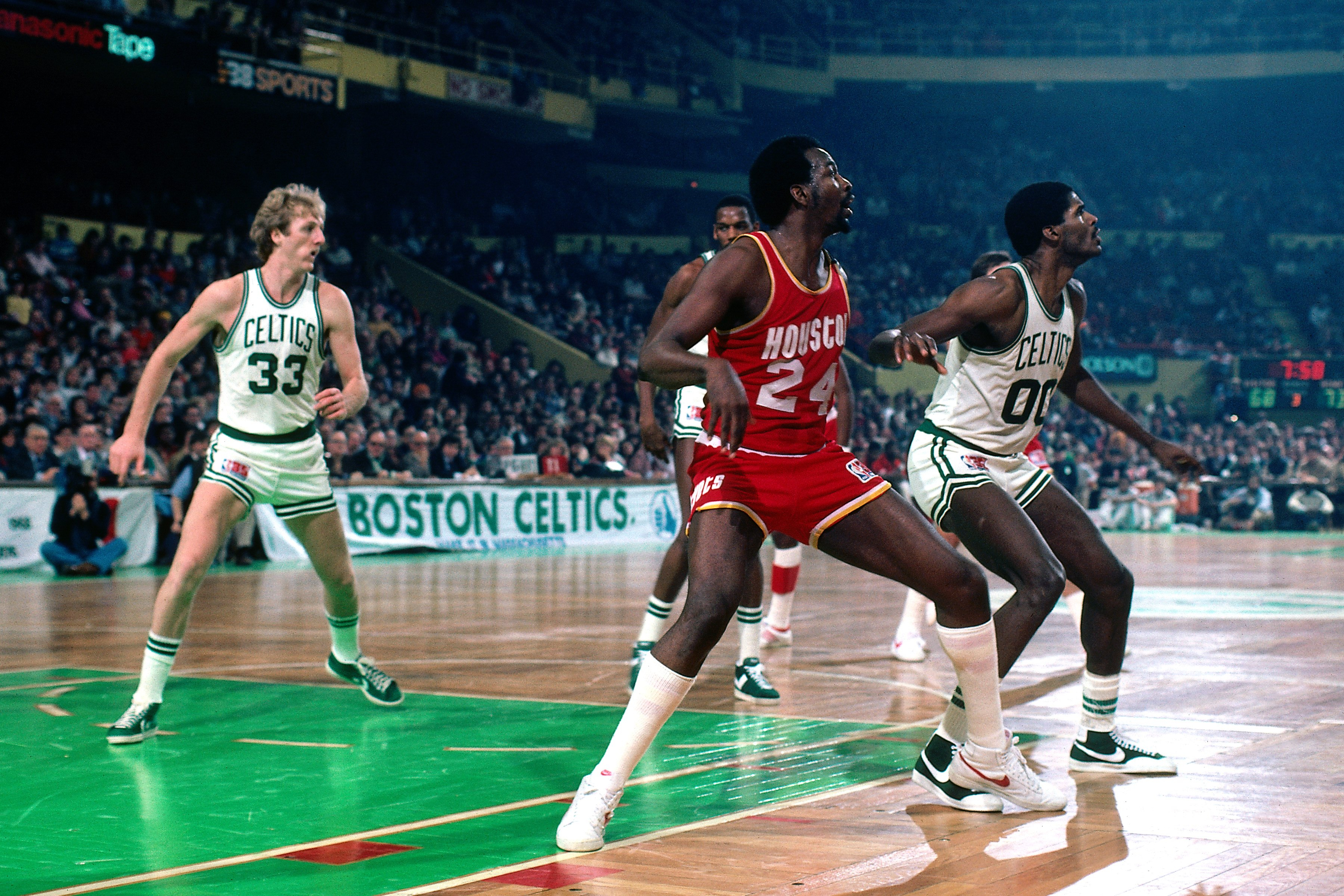
Moses Malone #24 of the Houston Rockets tussles with Robert Parish #00 of the Boston Celtics in the NBA Finals at the Boston Garden in Boston, Massachusetts, 1981. /VCG
Moses Malone #24 of the Houston Rockets tussles with Robert Parish #00 of the Boston Celtics in the NBA Finals at the Boston Garden in Boston, Massachusetts, 1981. /VCG
Malone and his team marched on with victories as they defeated the Kansas City Kings and the San Antonio Spurs to reach the NBA Finals, challenging Larry Bird and his Boston Celtics. Surrounded by perhaps the best forward-center partnership in NBA history of Bird, Robert Parish and Kevin McHale, Malone only got 22 points at a field goal rate of 40 percent, but still managed to take 98 rebounds, including 46 on the offensive glass. The Rockets lost the Finals, but the league remembered Malone's name.
Malone's registered height was 2.08 meters but he's never that tall. His hands were small and his wingspan was never to his advantage either. So how did a guy like him drop 14 straight double-double seasons as the greatest offensive rebounder in league history?
Imagine Malone as a big man who shares the leaping ability, speed and coordination of Blake Griffin as well as the shooting touch and power of Zach Randolph, both in their best years. Malone was always running all over the court; he could shoot from 15 feet (about 4.6 meters); most importantly, he's fast. When he met those seven-footers on the court, Malone was always able to appear in the best position between his rival and the basket in a blink. Then he could show his opponents why nobody ever matched him in "shooting, missing, jumping again, and again before he either scored or drew a foul."
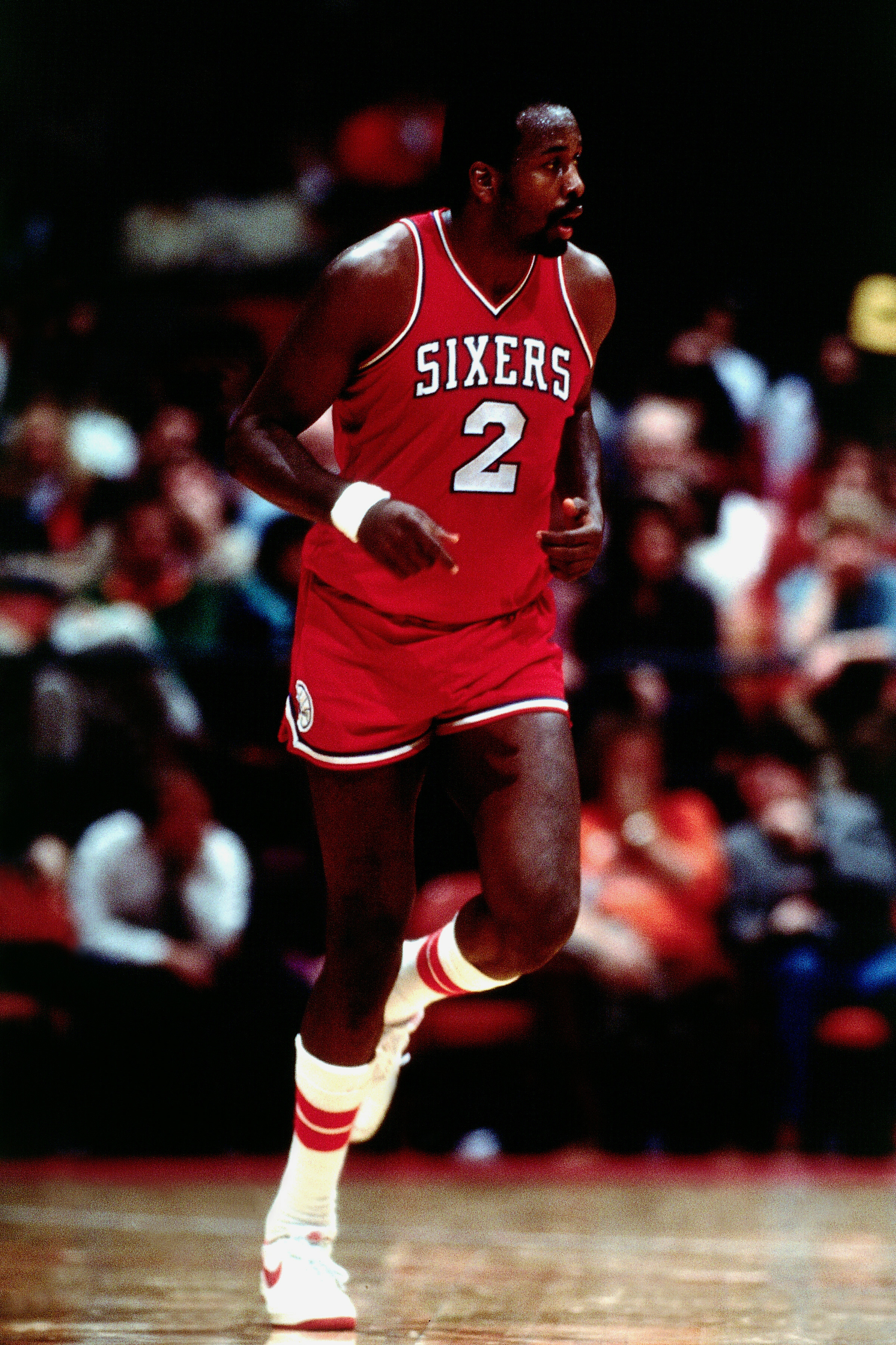
Moses Malone of the Philadelphia 76ers in the game against the Atlata Hawks at the Omni in Atlanta, Georgia, 1983. /VCG
Moses Malone of the Philadelphia 76ers in the game against the Atlata Hawks at the Omni in Atlanta, Georgia, 1983. /VCG
In the following 1981-82 season, Malone finished with 31.1 points, 14.7 rebounds and the second MVP award of his. By the way no center ever did that since then. He became a free agent and, he needed a championship. In September, he joined the Philadelphia 76ers.
Before Malone, the 76ers already had "Dr. J," Julius Erving, an elegant flyer and a real gentleman. Though Malone told his new teammates that this was Erving's team and his only job was to grab offensive rebounds, Malone soon became the true leader of the 76ers and built the team into a new basketball gang.
Philadelphia in the 1982-83 season became a true legend. They won franchise-record 65 games. Moses received the third MVP trophy of his while being selected into the All-NBA First Team with Erving. The team's back-court pair, Maurice Cheeks and Andrew Toney were both named NBA All-Star.
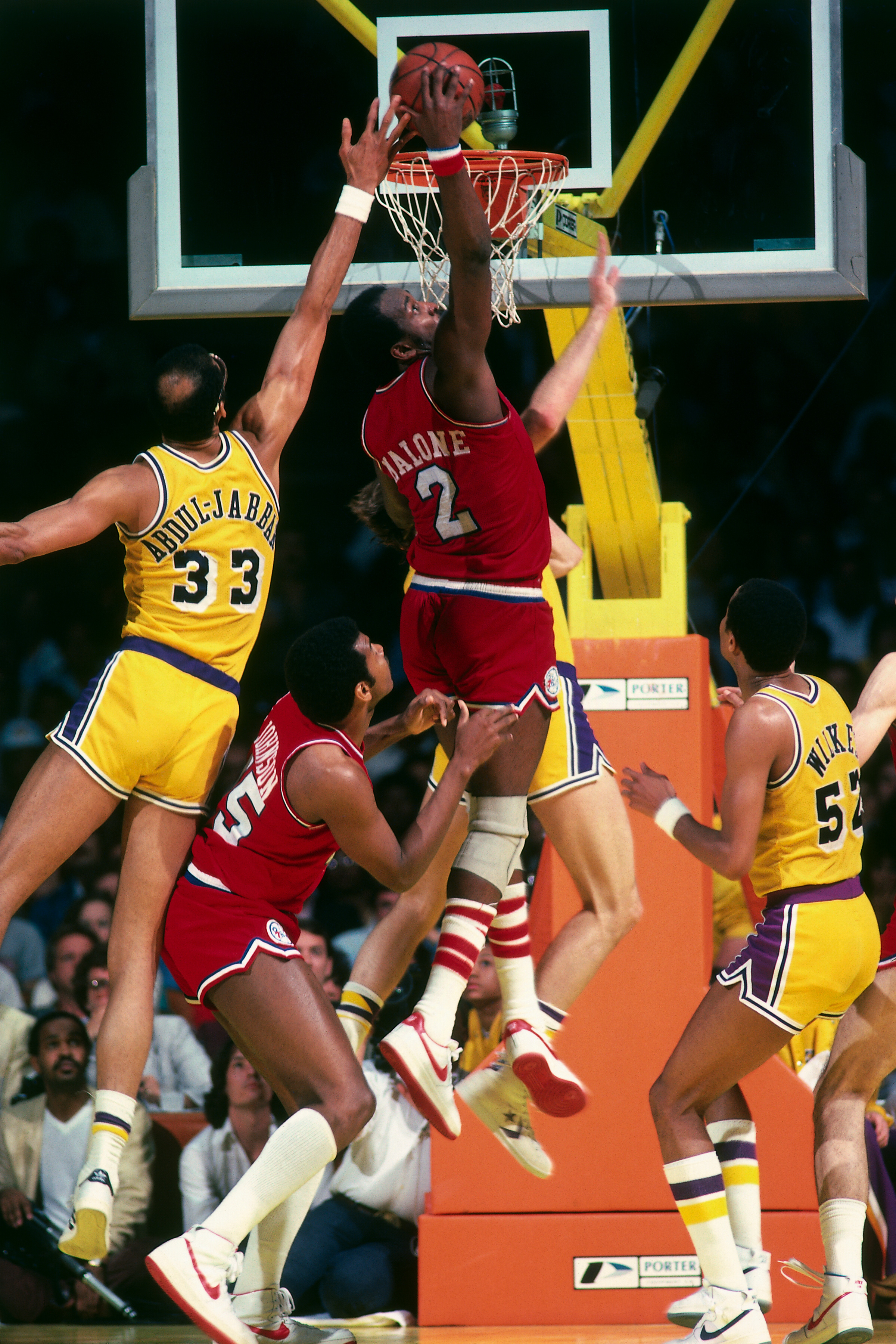
Moses Malone #2 of the Philadelphia 76ers dunks in the game against the Los Angeles Lakers at The Forum in Inglewood, California, 1984. /VCG
Moses Malone #2 of the Philadelphia 76ers dunks in the game against the Los Angeles Lakers at The Forum in Inglewood, California, 1984. /VCG
Before the playoffs began, Malone made his well-known victory statement: fo fo fo – meaning that the 76ers will sweep all the opponents 4-0 to win the NBA Championship. Then they smashed the New York Knicks 4-0, beat the Milwaukee Bucks 4-1 and walked over the Lakers 4-0 in the finals. Malone averaged 26 points and 18 rebounds per game in the finals. In Game 4, he grabbed 23 rebounds, including 10 in the last quarter. In the end, Malone won his first and only title and NBA Finals MVP award.
After that, Malone played for another 12 years, two of which happened in Philadelphia. During these two years, a 1.94-meter-tall, 130+ kilogram rookie joined the team. In his first season, he was able to get 14 points, 8.6 rebounds with only 9.5 attempts per game. From the second season, the team decided to give him a bigger role. As a result, the young man's stats grew from 20+13 to 23+15 and then to 28+12. Decades later, when he learnt about Malone's death (September 13, 2015), he described their relations as "he (Malone) treated me like a son."
This man's name is Charles Barkley and you can find Malone's shadow all over him.